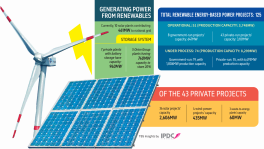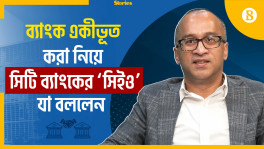Covid-19 vaccine diplomacy in India’s outreach plan
Government officials are working out the details of the plan in consultation with the experts’ group on vaccines headed by Dr VK Paul of Niti Aayog

The Union government is working on at least five distinct ways, ranging from free vaccines to guaranteed supply, in which it can help its immediate neighbours as well as countries in West Asia, Africa and even Latin America, officials familiar with the plan said on condition of anonymity. The idea is to leverage the country's standing as the world's vaccine factory to consolidate diplomatic ties.
Indian companies are working on two vaccines which are currently in clinical trials. Though the arrangement will be largely for these vaccines, it might also include vaccines manufactured by the Pune-based Serum Institute of India (SII), the world's largest vaccine maker, which has partnerships with three companies, including AstraZeneca.
To be sure, key details of the plan, which is still work in progress, are yet to be finalised, the officials added. For instance, any platform India sets up for the supply of vaccines has to respect licensing agreements that will decide where the vaccine can be sold and where they cannot.

Government officials are working out the details of the plan in consultation with the experts' group on vaccines headed by Dr VK Paul of Niti Aayog. Once ready and approved, New Delhi will finalise agreements with the possible beneficiaries, the officials added.
The countries will be carefully chosen to include key neighbours, nations where large number of Indians are working or studying, and those who have been very helpful and supportive of India in international forums such as the United Nations (UN), the officials said, explaining the five models being considered.
The first of the five models involve free distribution and might be restricted to a few immediate neighbours such as Bangladesh, Afghanistan, and other Saarc countries. The officials added that Pakistan isn't part of the thinking yet, and that they believe Islamabad might be relying on the Chinese vaccines under development.
The second model entails heavily subsidised vaccines being distributed to poor countries as a part of India's international obligations. Many African nations could benefit from this, the officials said.
On August 15, Prime Minister Narendra Modi announced that India is prepared to mass produce Covid-19 vaccines for domestic consumption when scientists approve the trails. "Not one, not two, as many as three coronavirus vaccines are being tested in India," he said from the ramparts of the Red Fort in his Independence Day speech. Last week, when foreign secretary Harsh Vardhan Shringla visited Dhaka, he mentioned in a press briefing that when India is ready with a vaccine, "our closest neighbours, friends, and partners and other countries will be part of it".
The Oxford AstraZeneca vaccine — co-produced by Serum Institute of India — is in the third or final phase of trials and widely considered as one of the front runners in the global vaccine race to tackle the pandemic that has already affected 25 million and killed around 840,000 people worldwide. The two Indian vaccine candidates—from Zydus-Cadila and Bharat biotech—have entered the phase 2 of human trials.
The third model involves recipient countries purchasing vaccines at the market price but being assured of supply. "As and when the vaccines are ready, they will not be available in the open market but will be distributed through a strict, government-controlled channel. So, even if a country is sitting on trillions of dollars, it will not be able to buy it off the shelf," said one of the officials, a member of the expert panel on vaccine.
Last week, a report in Nature said countries around the world have signed agreements or committed to buying around 4.5 billion doses of nine promising vaccine candidates being tested. Of this, developed countries have ordered at least 2 billion.
Under the fourth model, some countries will be approached to participate in Phase 3 trials of the two Indian candidates.
In the fifth model, India may offer some countries opportunities to co-produce the two domestic vaccines — a move that could hasten production of these vaccines.
The entire exercise will take place under the close supervision of the expert panel headed by Dr Paul and co-chaired by Union health secretary Rajesh Bhushan. On August 7, the panel was formed by the Cabinet secretariat and its mandate is to identify the right vaccine or a bunch of vaccines for use in the country, managing finances for large-scale procurement, and also deciding prioritisation of the population group that will receive the first doses.
While it isn't clear when the first vaccines will be available in India, Indian authorities told a Parliament panel earlier this month that they are keeping the option of an "emergency authorisation" of vaccines undergoing clinical trials for use.
Director general of ICMR Dr Balaram Bhargava told the panel that normally phase 3 trials require at least six to nine months, but considering the immediacy involved, the government could opt for emergency authorisation.
Disclaimer: This article first appeared on Hindustan Times, and is published by special syndication arrangement.


 Keep updated, follow The Business Standard's Google news channel
Keep updated, follow The Business Standard's Google news channel
















